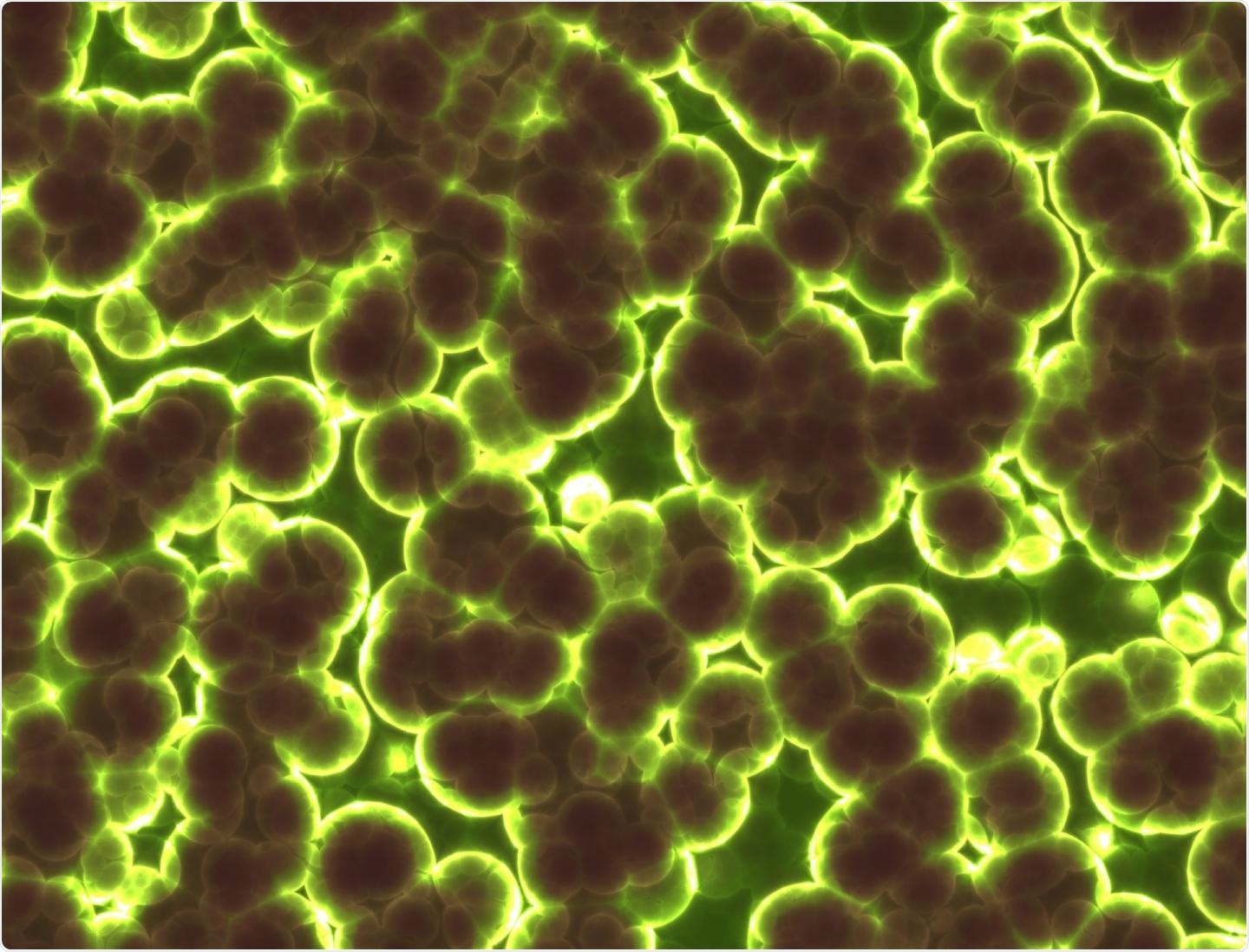For almost a century, advances in human healthcare have largely relied on the efficiency through which bacterial diseases can be treated.

Antibiotic-resistant bacteria, such as Staphylococcus aureus, abound in our wastewater effluents where they could be spreading the resistance gene to other (pathogenic) bacteria. Scientists have now begun to explore ways of preventing this via optimal disinfection processes. Image Credit: Environmental Science and Technology.
But currently, antibiotic resistance—the potential of certain mutant super-bacteria to resist antibiotics—poses a significant challenge to food security, healthcare, and overall social development across the world, threatening to overturn the extensive advancements achieved by civilization.
Now, researchers are making an urgent effort to solve this issue from different angles. Professor Yunho Lee from the Gwangju Institute of Science and Technology (GIST) based in Korea, whose contribution has been published in the American Chemical Society of Environmental Science and Technology journal, is looking at it from the perspective of his area of research—that is, wastewater management.
Bacteria, including antibiotic-resistant bacteria and their resistance genes, abound in various aquatic environments. These are therefore dangerous breeding grounds for antibiotic resistance, where through a process called horizontal gene transfer, resistant bacteria could transfer the resistance gene to other bacteria, which could then increase the antibiotic resistance levels among the members of the bacterial community, including pathogens.”
Yunho Lee, Professor, Gwangju Institute of Science and Technology
“We could reduce this occurrence, however, if we determined which disinfectants and how much of them could safely and efficiently kill the resistant bacteria and gene in our drinking water and wastewater effluents,” added Lee.
As a preliminary step toward this target, Professor Lee and his research team examined the effects of varying levels of chlorine, ultraviolet radiation, and ozone on the deterioration of both intracellular and extracellular (contained inside bacteria) methicillin (a form of penicillin) resistance gene, mecA, of the Staphylococcus aureus bacteria in water.
Based on high-resolution observations through scanning electron microscopy as well as a study of the impact of disinfectants on cell structure and the reaction dynamics, the team designed a new reaction kinetics model for each disinfectant against mecA, apart from a technique for quantifying the rate of degradation. The researchers’ experiments validated the effectiveness of the new models and the technique.
Our findings are a key step in determining the optimal conditions for wastewater disinfection process operations for eliminating mecA and mitigating the spread of antibiotic resistance through our municipal wastewater systems. In this way, our research significantly contributes to public health protection against infection by antibiotic-resistant bacteria.”
Yunho Lee, Professor, Gwangju Institute of Science and Technology
In addition, Professor Lee believes that the new models can also be extended to other sections of double-stranded DNA, like those of specific viruses. Such newer strategies are, therefore, expected to lead to sustainable solutions to the emerging issue of antibiotic resistance and similar problems in the near future.
Source:
Journal reference:
Choi, Y., et al. (2021) Degradation Kinetics of Antibiotic Resistance Gene mecA of Methicillin-Resistant Staphylococcus aureus (MRSA) during Water Disinfection with Chlorine, Ozone, and Ultraviolet Light. Environmental Science and Technology. doi.org/10.1021/acs.est.0c05274.